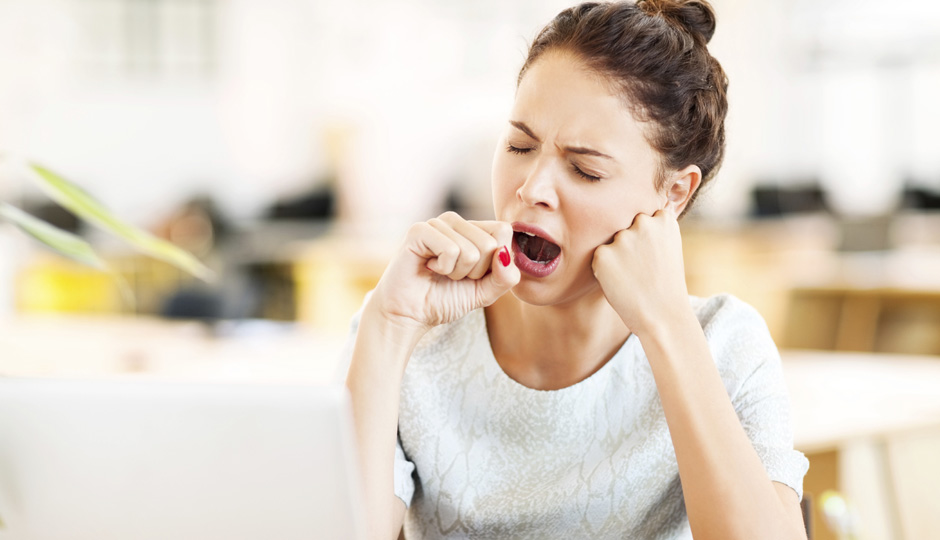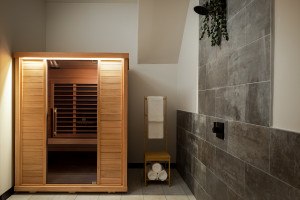Sleep Week: The Scientific Case for Napping at Work
Forward this post directly to your boss.
It’s Be Well Philly Sleep Week! All week long, we’re celebrating sleep and all the wonderful things good quality shuteye does for your body. We reached out to Philly’s top sleep experts to answer all your sleep questions in one fell swoop. Check back this week for more installments of our ultimate sleep FAQ. And to see them all in one place, pick up a copy of Philadelphia magazine’s May issue, on newsstands now.
» Also in Sleep Week: “Why Do I need Sleep? And How Little Sleep Can I Get Away With?”
How can I convince my boss that midday naps are a good idea?
Try this: A 2010 study found that naps can boost alertness and improve cognitive function—effects that last for hours after even a short stint of sleep. Studies have also found that the ideal time to nap is early afternoon—think post-lunch — so you won’t have trouble sleeping later at night. Ideally, you’ll restrict your midday snooze to between 15 and 30 minutes — just enough time to enter a light phase of sleep and refresh your brain, but not so long that you wake up feeling groggy. Most sleep experts say occasional alertness-boosting naps are okay, but if you’re making them a daily habit, you probably aren’t getting enough sleep at night.
I’ve always been a night owl, but I really need to become a morning person. How can I make the switch?
Your propensity toward “eveningness” or “morningness” (the terms sleep experts use for night owls and early risers) is partly determined by your genes—specifically, mutations in the biological clock genes that govern these rhythms. But it’s not all about wiring: Your late-night tendencies have been cemented by outside factors, from your upbringing (Did you have a late-working parent you stayed up to see?) to your caffeine habits (Do you drink espresso after dinner?) to your light exposure (Does you get too much light at night and not enough in the morning?). So while you can’t do anything about your genetic code, you can adjust some of the external factors to help nudge you toward morningness.
Karl Doghramji, director of Jefferson’s Sleep Disorders Center, says your husband should conform to regular bedtimes and wake times, even on weekends. Take baby steps: Have him set his alarm earlier by 15 or 30 minutes each day until he reaches the ideal rising hour. And make sure he gets plenty of bright light during the first hour of his day. “Bright light in the morning is an important signal to the body to re-sync its rhythm,” says Doghramji. On the flip side, have him limit his exposure to light in the evenings—including iPhones and other blue-light-emitting devices — especially in the hour before bedtime. Doghramji says it will take concerted, consistent effort to make the switch to morningness, but your husband should notice a difference—more alertness in the morning, feeling tired earlier in the evening—over the course of a few weeks.
What’s the latest I can get away with drinking my afternoon cup of coffee without tossing and turning come bedtime?
Good news, Starbucks addicts: Caffeine has a half-life of anywhere between two and seven hours, depending on how you metabolize it, says David Dinges, chief of Penn Med’s division of sleep and chronobiology. “The rate at which you metabolize caffeine is genetically determined,” he explains, and you probably already know how sensitive (or not) you are to a caffeine jolt. A good rule of thumb, says Fredric Jaffe, director at Temple’s Sleep Center at Oaks, is to cut yourself off at least three hours before bed, to give the caffeine effect adequate time to run its course.
Will eating a big meal late in the evening screw with my sleep?
If there’s anything a good night’s sleep depends on, it’s routine, experts say. So the main risk with a late-night feast is that you may be cutting into your usual bedtime, which can throw your sleep routine out of whack. And if you’re constantly moving mealtimes around, you may really begin to mess with your shut-eye, Dinges says.
Then there’s the whole digestion thing. If you eat something that disagrees with your stomach before hitting the sack, you can forget about sleeping well. “It’s like speeding in a car at night,” explains Dinges. “You’re not going to crash every time, but you’re increasing your risk of something going wrong.” And if you down a few glasses of wine at dinner, you may require more trips to the bathroom in the middle of the night—another roadblock to good sleep.
Will having a glass of wine (or four) before bed help me sleep?
Sipping a glass of wine as you wind down might not put you to sleep, but if it helps you to relax (relaxation is sleep’s best friend!), it won’t hurt. Downing four glasses, on the other hand, isn’t a good idea, according to Jaffe. Alcohol has sedative effects, so drinking a lot can knock you out. But when those effects wear off in the middle of the night, that disrupts your sleep. Add this to the fact that having four glasses of wine most likely means you’re going to bed later than usual—screwing with sleep’s other best friend, routine—and you’ve got plenty of reasons to stick to a single nightcap.
And to answer the question you’ve secretly been asking yourself: No, a puff of marijuana probably isn’t the answer, either. A 2014 study out of Penn’s Perelman School of Medicine linked marijuana use to poorer sleep quality. (We were surprised, too.)
Like what you’re reading? Stay in touch with Be Well Philly — here’s how:
- Like Be Well Philly on Facebook
- Follow Be Well Philly on Twitter
- Follow Be Well Philly on Pinterest
- Get the Be Well Philly Newsletter



